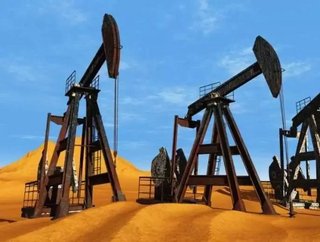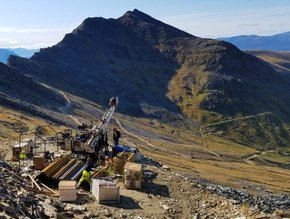Europe's Mining Resurgence

Dating back to the ancient Greeks and Romans, Europe has had strong ties to the mining industry due to its notably favorable geography and well-endowed mineral deposits. Numerous mining milestones have occurred throughout the region, with some of the most praiseworthy including: the rich silver deposits of Laurion on the Greek Attica coast, the world-class copper, silver and iron deposits of Rio Tinto (which were the most important source of metals for the Roman empire), the tin deposits of Cornwall and finally, the raw rich silver, copper and lead deposits in Rammelsberg (which were an indispensable factor in European resurgence after the Renaissance).
Variscan mines, a knowledgeable source on European mining activity, reported that, “By any metric, the overall metal endowment of Europe is impressive, especially considering that much of the continent, with the exception of Sweden, Finland and Spain, has remained largely unexplored over the last 30-40 years due to a combination of economics and political issues. Countries considered to have strong geological potential to host additional major mineral deposits include Germany, Bulgaria, Romania, France, Hungary, Serbia, Greece and Macedonia.”
With a history this long and rich in mining, why is it that now there is this dire push for Europe to reassert itself as a major player in the mining industry? And how do Europeans feel about these recent developments?
A renewable generation and rising energy costs
While trying to transition from relying on coal and other timeless fuels for our energy needs, the push towards embracing and utilizing new fossil fuels has proven to be costly in more ways than mere dollar signs. With skyrocketing energy costs and the desperate push for increased European mining activity, countries like Germany, Poland and the Czech Republic are facing the harsh realities which accompany serious mining activity and the disillusionment of “green promises”. The end-result from pursuing these endeavors and revisiting energy matters seems to end in a newfound coal dependency, which is less than an eco-friendly alternative.
The proof in this pudding seems to be that these overly-grandiose green energy initiatives cannot just simply look good on paper, they need to produce profitable positive affects for those working so hard and losing so much to ensure their progress. Blindly backing these sweeping plans for “progress” has seemed to only get countries, especially Germany, in trouble not only with its own public, but financially compromising situations with other nations as well.
The Economist discusses Germany’s recent green initiatives by saying, “Cost is not the only problem with the Energiewende. It has in effect turned the entire German energy industry into a quasi-planned economy with perverse outcomes. At certain times on some days, sun and wind power may provide almost all German electricity. But the sun does not always shine, especially in winter, and the wind is unpredictable. So conventional power plants have to stay online in order to assure continuous supply.”
Transitioning away from nuclear energy, coal and other stone-age fuel sources seems great on paper, but when put into practice, it is apparent that Germany’s failure to provide practical alternatives demonstrates what these green ideas really are: just ideas. Presenting themselves as more of a marketing slogan than an actual, plausible policy, German energy administrators and politicians are the first of many to experience this inevitable downfall when caught in the web of self-revolutionizing energy policies.
But at what cost?
Aside from land destruction, deforestation and cultural devastation, this widespread desire to self-revolutionize European countries respective energy sectors has only landed on the main issue it’s been trying to avoid: more coal.
Bloomberg reported that, “The projects go against the grain of European Union rules limiting emissions and pushing cleaner energy. Alarmed at power prices about double U.S. levels, policy makers are allowing the expansion of coal mines that were scaled back in the past two decades, stirring a backlash in the targeted communities.”
By trying so hard to sustain our ecosystems for the future, countries around Europe are making detrimental decisions that are greatly impacting cultures that are already struggling to stay alive, increasing deforestation and creating a widespread state of cultural uneasiness surrounding all mining exploits. Just when these countries think they are strengthening their independent energy agencies or government policies, they are in turn becoming more reliant on foreign markets and products to sustain their economies when these initiatives fail to deliver their promised results.
“It’s absurd,” said Petra Roesch, mayor of Proschim, a 700-year-old village southeast of Berlin that would be uprooted by Vattenfall’s mine expansion. “Germany wants to transition toward renewable energy, and we’re being deprived of our land.”
An unfortunate endgame
The ironic influence behind this resurgence of mining in Europe points to the widespread desire to self-revolutionize energy initiatives and become more self-reliant; but this frantic push for green-change has resulted in a series of negative influences in both the cultural and physical destruction of people and their land in Germany, Poland, Austria and the Czech Republic. Not only have there been harmful repercussions, but these green ideas have proven that they are not all that they have been cracked up to be. A reliance on coal, the very thing these promises ensured would be moved away from, is once again becoming the safety net for not if, but when these promises begin to dissolve.
The disillusionment of the public in terms of its policymaker’s sustainability promises has been the worst shortcoming of all— people handicapped by faulty economic changes its country is enforcing and that in fact, is the worst kind of change of all.
Dating back to the ancient Greeks and Romans, Europe has had strong ties to the mining industry due to its notably favorable geography and well-endowed mineral deposits. Numerous mining milestones have occurred throughout the region, with some of the most praiseworthy including: the rich silver deposits of Laurion on the Greek Attica coast, the world-class copper, silver and iron deposits of Rio Tinto (which were the most important source of metals for the Roman empire), the tin deposits of Cornwall and finally, the raw rich silver, copper and lead deposits in Rammelsberg (which were an indispensable factor in European resurgence after the Renaissance).
Variscan mines, a knowledgeable source on European mining activity, reported that, “By any metric, the overall metal endowment of Europe is impressive, especially considering that much of the continent, with the exception of Sweden, Finland and Spain, has remained largely unexplored over the last 30-40 years due to a combination of economics and political issues. Countries considered to have strong geological potential to host additional major mineral deposits include Germany, Bulgaria, Romania, France, Hungary, Serbia, Greece and Macedonia.”
With a history this long and rich in mining, why is it that now there is this dire push for Europe to reassert itself as a major player in the mining industry? And how do Europeans feel about these recent developments?
A renewable generation and rising energy costs
While trying to transition from relying on coal and other timeless fuels for our energy needs, the push towards embracing and utilizing new fossil fuels has proven to be costly in more ways than mere dollar signs. With skyrocketing energy costs and the desperate push for increased European mining activity, countries like Germany, Poland and the Czech Republic are facing the harsh realities which accompany serious mining activity and the disillusionment of “green promises”. The end-result from pursuing these endeavors and revisiting energy matters seems to end in a newfound coal dependency, which is less than an eco-friendly alternative.
The proof in this pudding seems to be that these overly-grandiose green energy initiatives cannot just simply look good on paper, they need to produce profitable positive affects for those working so hard and losing so much to ensure their progress. Blindly backing these sweeping plans for “progress” has seemed to only get countries, especially Germany, in trouble not only with its own public, but financially compromising situations with other nations as well.
The Economist discusses Germany’s recent green initiatives by saying, “Cost is not the only problem with the Energiewende. It has in effect turned the entire German energy industry into a quasi-planned economy with perverse outcomes. At certain times on some days, sun and wind power may provide almost all German electricity. But the sun does not always shine, especially in winter, and the wind is unpredictable. So conventional power plants have to stay online in order to assure continuous supply.”
Transitioning away from nuclear energy, coal and other stone-age fuel sources seems great on paper, but when put into practice, it is apparent that Germany’s failure to provide practical alternatives demonstrates what these green ideas really are: just ideas. Presenting themselves as more of a marketing slogan than an actual, plausible policy, German energy administrators and politicians are the first of many to experience this inevitable downfall when caught in the web of self-revolutionizing energy policies.
But at what cost?
Aside from land destruction, deforestation and cultural devastation, this widespread desire to self-revolutionize European countries respective energy sectors has only landed on the main issue it’s been trying to avoid: more coal.
Bloomberg reported that, “The projects go against the grain of European Union rules limiting emissions and pushing cleaner energy. Alarmed at power prices about double U.S. levels, policy makers are allowing the expansion of coal mines that were scaled back in the past two decades, stirring a backlash in the targeted communities.”
By trying so hard to sustain our ecosystems for the future, countries around Europe are making detrimental decisions that are greatly impacting cultures that are already struggling to stay alive, increasing deforestation and creating a widespread state of cultural uneasiness surrounding all mining exploits. Just when these countries think they are strengthening their independent energy agencies or government policies, they are in turn becoming more reliant on foreign markets and products to sustain their economies when these initiatives fail to deliver their promised results.
“It’s absurd,” said Petra Roesch, mayor of Proschim, a 700-year-old village southeast of Berlin that would be uprooted by Vattenfall’s mine expansion. “Germany wants to transition toward renewable energy, and we’re being deprived of our land.”
An unfortunate endgame
The ironic influence behind this resurgence of mining in Europe points to the widespread desire to self-revolutionize energy initiatives and become more self-reliant; but this frantic push for green-change has resulted in a series of negative influences in both the cultural and physical destruction of people and their land in Germany, Poland, Austria and the Czech Republic. Not only have there been harmful repercussions, but these green ideas have proven that they are not all that they have been cracked up to be. A reliance on coal, the very thing these promises ensured would be moved away from, is once again becoming the safety net for not if, but when these promises begin to dissolve.
The disillusionment of the public in terms of its policymaker’s sustainability promises has been the worst shortcoming of all— people handicapped by faulty economic changes its country is enforcing and that in fact, is the worst kind of change of all.






